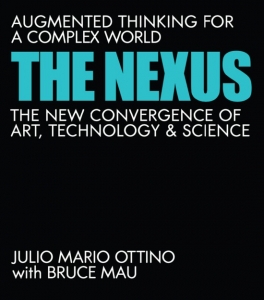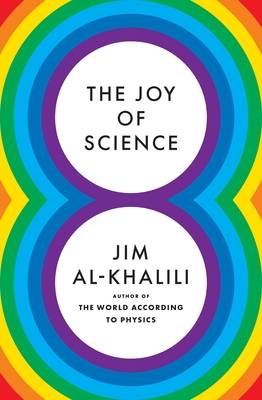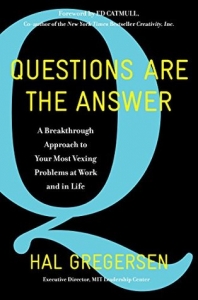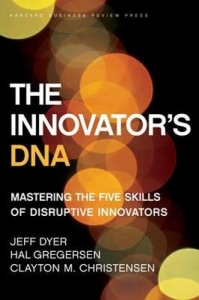Augmented Thinking: The New Convergence of Art, Technology, and Science with Professor Julio Ottino
We live in an age of increasing complexity and uncertainty. We live in a time when humanity faces extremely complex challenges. Our ability, or lack thereof, to create solutions to such extremely complicated challenges may determine our long-term survival as a civilization. The question is: is our existing style of thinking adequate, or do we require a new style of thinking in order to innovate and lead into the future. In their recent book Julio Ottino and Bruce Mau make a case for “The Nexus”, a radically new way of thinking — one in which art, technology, and science converge to expand our creativity and augment our insight. In this episode or Bridging the Gaps I speak with Julio Ottino who explains “the Nexus” and guides us how to embrace the powerful idea of complementarity, where opposing extremes coexist. We discuss how blurring the lines between the three major realms of human creation — art, technology, and science — results in a significant expansion of thinking spaces and a richness of potential ideas.
Julio Ottino is Dean of Engineering and Applied Sciences, and a professor of Chemical and Biological Engineering at Northwestern University, in Illinois. He is also the founding co-director of Northwestern University’s Institute on Complex Systems. He is a thought leader, author, artist, and internationally recognized researcher in chaos theory and complex systems whose work has been featured in “Nature”, “Science”, and “Scientific American”.
We begin our discussion by looking back at the time before the divergence of disciplines and how key figures in science immensely benefited from talents and skills in a variety of fields. Then we talk about how, when, and why the disciplines diverged. We delve into the concept of “the Nexus” and discuss whole-brain thinking. The book is jam-packed with wonderful photographs and diagrams. I ask Professor Ottino to describe the process that he followed to write this book. This has been a wonderful discussion.
Complement this discussion with Asking Better Questions for Creative Problem Solving, Innovation and Effective Leadership with Hal Gregersen and with “Learning How to Learn”: Techniques to Help You Learn with Dr Barbra Oakley and then listen to Multiple Intelligences, Future Minds and Educating The App Generation: A discussion with Dr Howard Gardner





Connect With Us